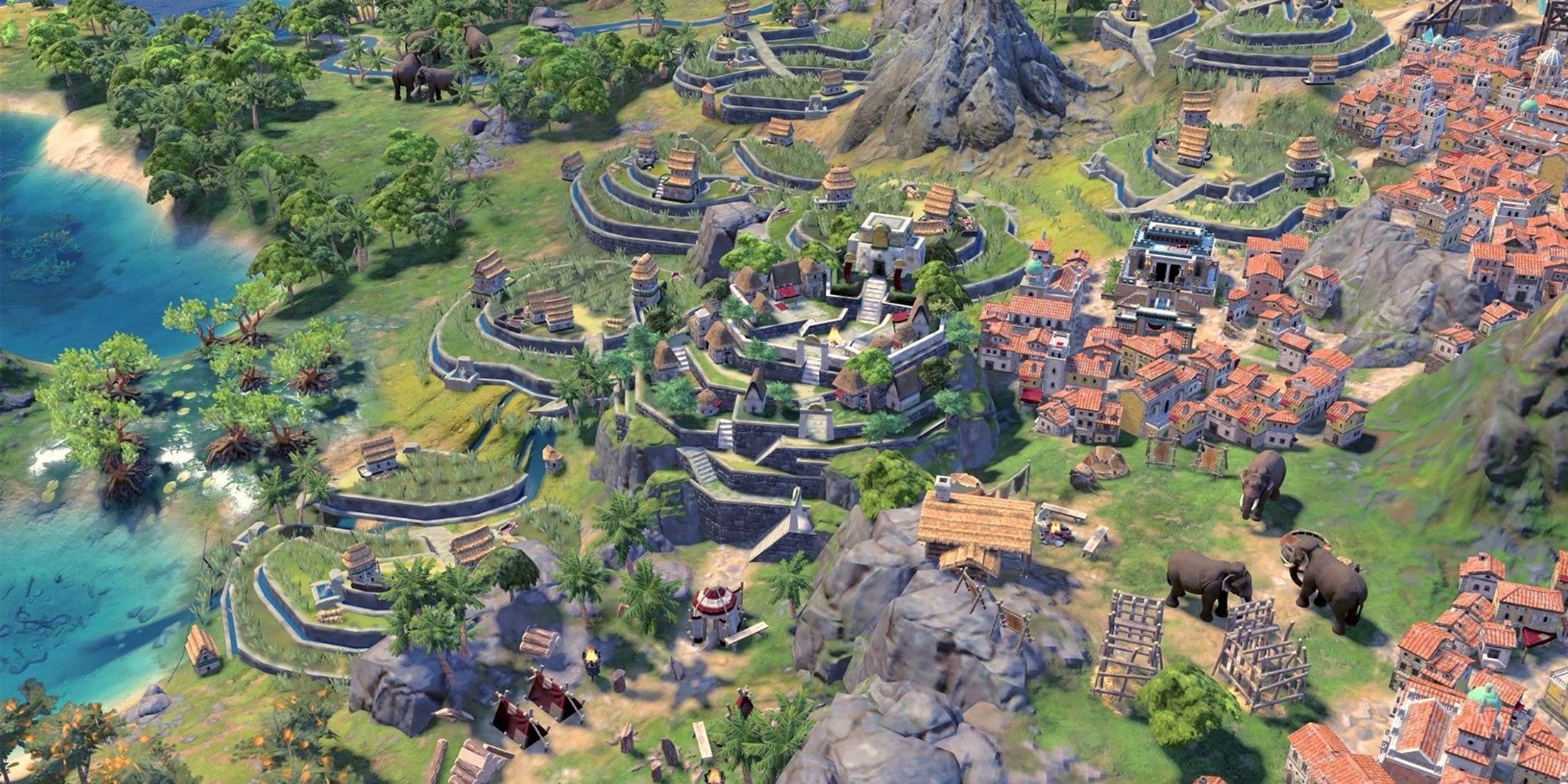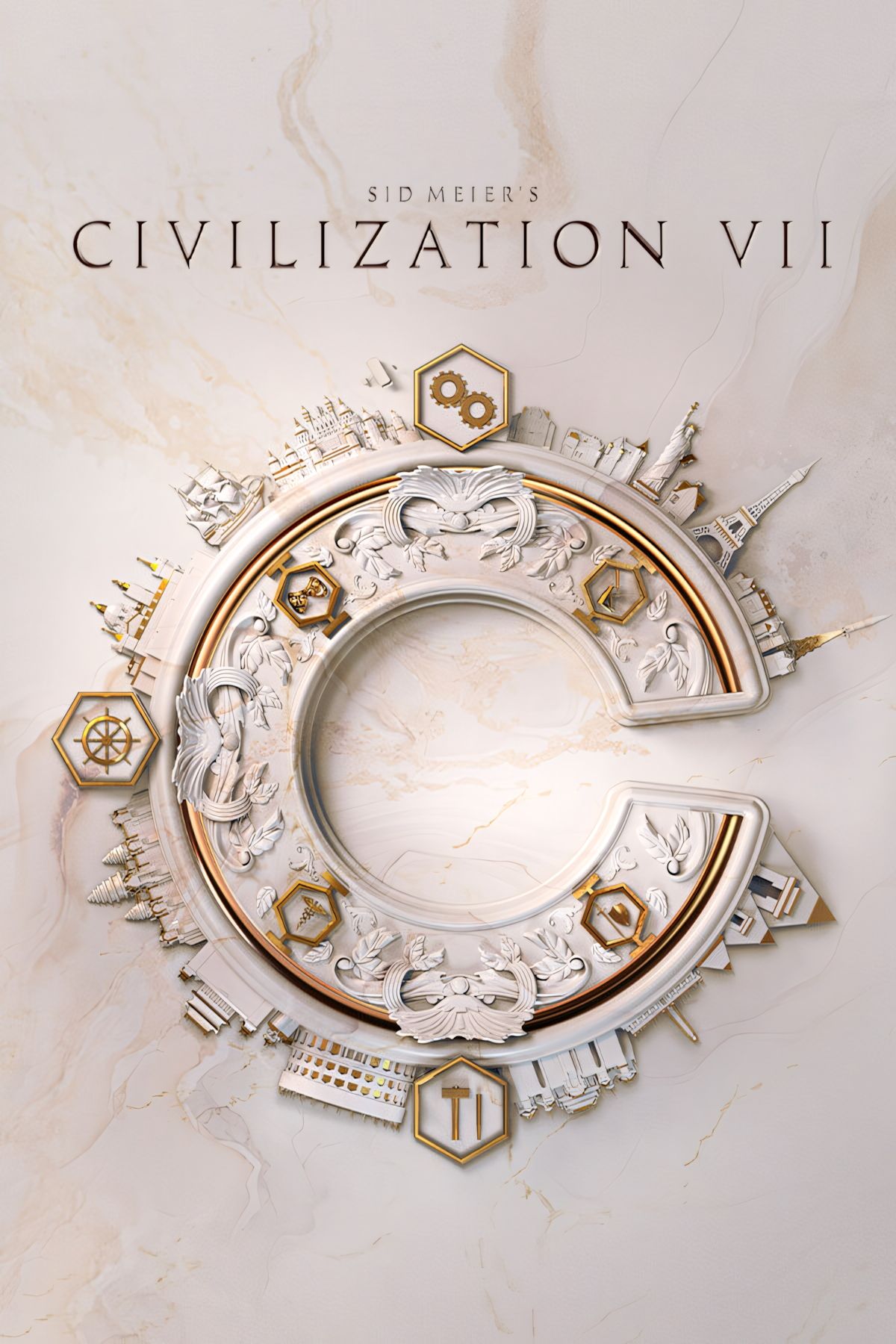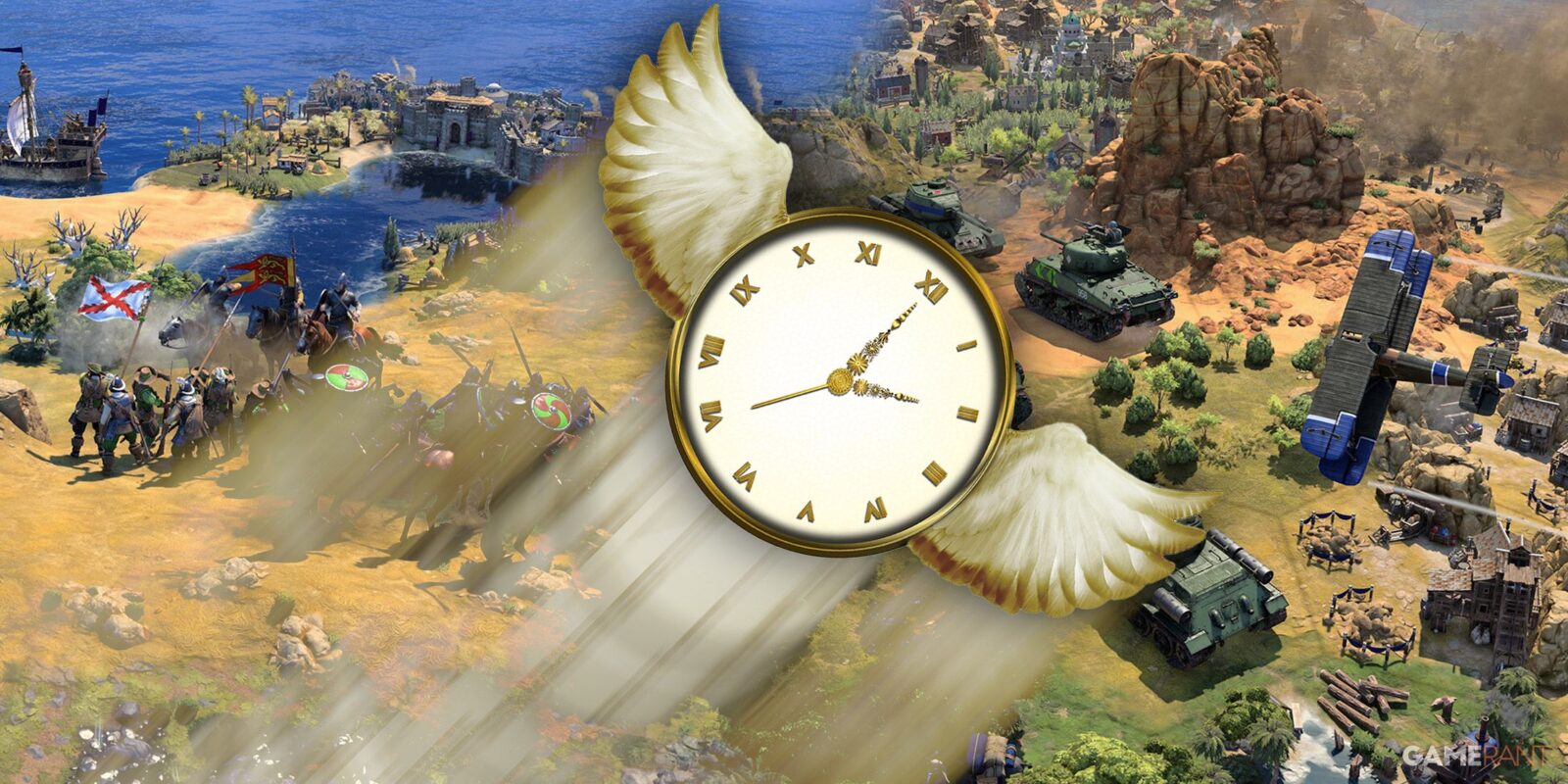The release of Civilization 7 can be described as nothing less than an event for the strategy genre. Considering it’s been almost ten years since the release of Civilization 6, it’s no wonder that Civilization 7 has drawn plenty of attention from across the spectrum. However, conversation has quickly shifted into controversy thanks to one of the game’s boldest additions.
Civilization 7 introduced Ages as a brand-new mechanic, and as one of the game’s biggest selling points. Whereas previous entries played out over one cohesive timeline, Civilization 7 is broken up into three different Ages, with each Age representing a different period of history. Of course, such a drastic change to the series’ formula has brought in plenty of detractors, but this change of pace certainly brings along plenty of benefits as well.

Related
Civilization 7’s Age System is a Welcome Change of Pace
Unlike previous Civilization titles, Sid Meier’s Civilization 7 has broken the game down into three distinct ages, and that change goes a long way.
Civilization 7’s Age Transitions Create the Perfect Time for Breaks
Finishing a game of Civilization is no small task. Whether one is competing against computer opponents or other players, booting up Civilization is a hefty commitment. Although completion times vary greatly for any number of reasons, an average run of Civilization 6 could land in the ballpark between five and fifteen hours.
Furthermore, games like Civilization 7 can be dangerously addicting. Many strategy games, Civilization 7 included, strike a perfect balance between concentration and relaxation. Moment to moment gameplay is laid back, as players manage their civilization’s projects and command units each turn. Every so often, disaster strikes, and players are incentivized to apply more direct focus.
These moments are littered throughout the game, and can double as benchmarks on a player’s path to victory. Before Civilization 7, however, there weren’t many obvious stopping points included alongside them. Players would simply tackle small objectives on the way to the end of the game, and the pace of the game would be largely up to an individual’s choices.
Civilization 7’s Ages Can Help Fans Moderate Playtime
While previous games in the Civilization series take place over the course of one continuous campaign, Civilization 7 essentially features three in one. Rather than triple the runtime of any given game, it would be more accurate to say that Ages cut the game into three digestible slices. Although this new dynamic has proven off-putting to some fans, its in-game benefits can be seen every step of the way.
After all, strategy games aren’t just long, they’re fun. As a turn-based strategy game in particular, Civilization can tend to run long without ever making a player feel like they’re out of control. It can sometimes be all too easy to become completely wrapped up in Civilization without needing to stop and think for too long about how long the run has been going.
With that in mind, Civilization 7‘s new Age Transitions are an absolute lifesaver for fans that may have gotten easily addicted otherwise. The end of each Age is comparable to the end of the game, without needlessly extending the length of the run as a whole. It’s an organic way to create breaks for the player, and give them all the time they need to decide where they feel like taking their Civ next.

Grand Strategy
Turn-Based Strategy
4X
- Released
-
February 11, 2025











Leave a Reply